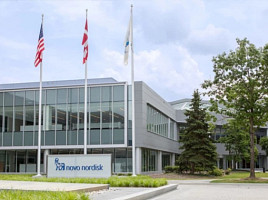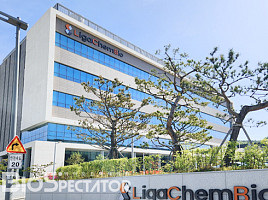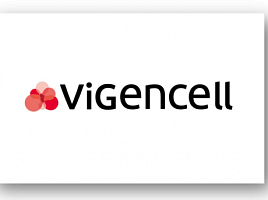기사본문
'Unbreakable will' FDA clears Lecanemab as second anti-amyloid AD's drug
입력 2023-01-09 05:34 수정 2023-01-09 11:28
by Sungmin Kim

Biogen and Eisai's 'unbreakable will' succeeded in marketing the second Alzheimer's disease treatment. This is a huge step forward since the release of the first Alzheimer's disease treatment, Adulehm (aducanumab), a year and a half ago.
After the release of Arduhelm, Biogen was pushed to the brink as controversy over efficacy and safety led to commercial failure, but this second drug market seems to be a new opportunity.
Eisai and Biogen received an accelerated approval for the amyloid beta (Aβ) antibody, 'Lecanemab', from the US Food and Drug Administration (FDA) on the 6th as a treatment for mild cognitive impairment (MCI) to early Alzheimer's disease (AD). Lecanemab is marketed under the product name 'LEQEMBI™' and is an intravenous formulation administered at a dose of 10mg/kg every 2 weeks.
The U.S. Food and Drug Administration (FDA) made an accelerated approval decision based on the results of phase 2 clinical trials in which Lecanemab reduced brain amyloid beta plaques in 763 patients with early-stage Alzheimer's disease. It is the same standard as the previously marketed Arduhelm.
Eisai set the price of Lecanemab at $26,500 per year, considering not only clinical value but also social value. There are 6.5 million Alzheimer's patients in the United States alone. First of all, it is slightly lower than the marketed Arduhelm price of $28,200, which was halved within 6 months of its release. This is higher than the cost-effective price range of $11,000 to $25,000 for Lecanemab previously suggested by the US Institute for Clinical Economic Review (ICER).
Driven by momentum, Eisai announced the same day they immediately submitted a supplemental Biologics License Application (sBLA) to the FDA supporting the conversion of the accelerated approval of LEQEMBI™ for intravenous use to a traditional approval. If it is officially approved, there will be room to overturn the US reimbursement decision (NCD), which was virtually unsuccessful with the previous Arduhelm, and Eisai announced that it aims to a full reimbursement on previous Lecanemab in the US.
Previously, Eisai announced in September of last year that an 18-month administration of Lecanemab to patients with early Alzheimer's disease delayed cognitive decline by 27%, which is a difference of 0.45 points in the primary endpoint CDR-SB index. Statistical significance was also confirmed at all secondary endpoints. It was the first clear clinical success in the field of Alzheimer's disease treatment, which was marked by failures over the past 20 to 30 years, and the atmosphere began to completely change from this point as a start.
The industry's focus is on side effects of ARIA. Recently, foreign media or external reports have reported that three deaths have potentially occurred with Lecanemab, and the issue of side effects concerns continues. In phase 3 clinical trials, when Lecanemab was administered, ARIA-E side effects accompanied by cerebral edema occurred in 12.6% and ARIA-H side effects accompanied by bleeding occurred in 17.3%. Among them, the serious AE was 0.8% and 0.6%, respectively.
Regarding the side effects of LEQEMBI, the FDA explained, "Includes a warning for amyloid-related imaging abnormalities (ARIA), which are known to occur with antibodies of this class. ARIA usually does not have symptoms, although serious and life-threatening events rarely may occur."
Eisai explained that there was no increase in ARIA-H side effects compared to placebo in patients who administered LEQEMBI with antithrombotic or antiplatelet drugs. LEQEMBI did not include a risk assessment and mitigation strategy (REMS) to manage black box or drug risks.
Eisai CEO Haruo Naito said, "The FDA's approval of LEQEMBI under the Accelerated Approval pathway is an important milestone in Eisai's four decades of research in Alzheimer's disease and reflects our continued commitment to alleviating the burden of Alzheimer's disease for patients and their familie," “Eisai will also engage with various payers to provide access to LEQEMBI, offer a patient support program, and will do its utmost to complete submission for traditional approval as soon as possible to serve more people living with early Alzheimer's disease.” he said.
“Our focus now is on the path forward,” said Christopher A. Viehbacher, CEO of Biogen. He said, “This approval is also a recognition of the many scientists and doctors who have, over many years, patiently and persistently worked to find a treatment for this highly complex disease. Eisai and Biogen have collaborated for nearly a decade to advance research to improve the lives of those suffering from Alzheimer's disease."
Now, what the industry is focusing on is the TRAILBLAZER-ALZ 2 top-line clinical phase 3 results for Eli Lilly's amyloid plaque-targeting N3pG antibody 'Donanemab' scheduled for the middle of this year. Lily’s Donanemab will also hear the FDA’s decision in February on its accelerated approval, and with the addition of the accelerated approval of Lecanemab, we anticipate no accidents on its approval.







